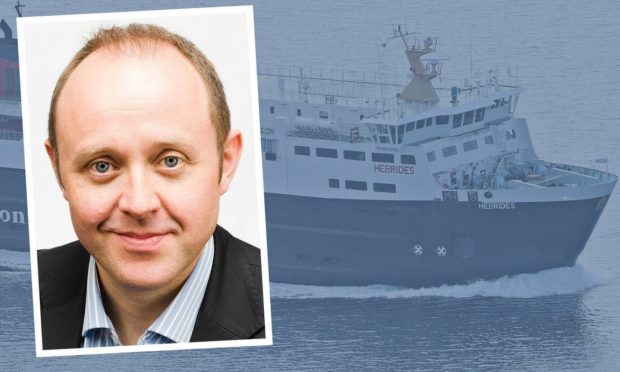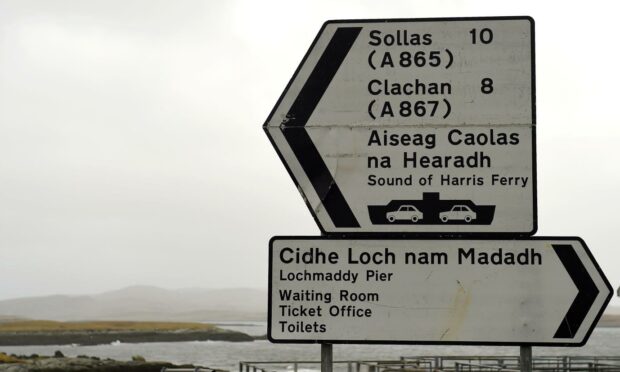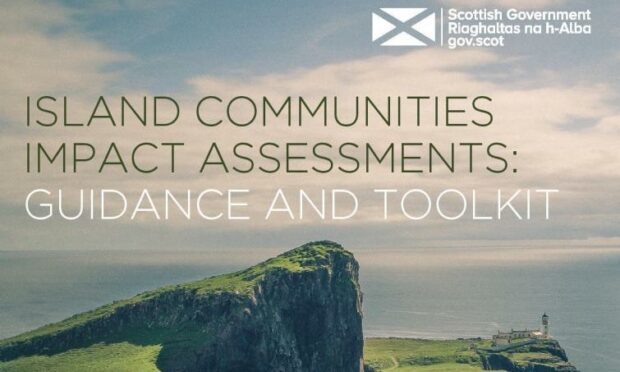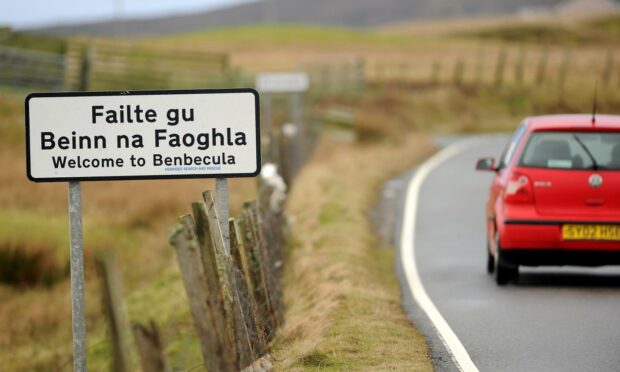The Scottish Government is being urged to provide free ferry travel for young Gaelic-speaking islanders to help protect the under-threat language.
Campaigners want to see plans for free bus travel for under-22s extended to include ferry crossings.
They argue this would remove the disadvantage faced by islanders to get to jobs as well as education, social, recreational and sporting opportunities.
Development agency Bòrd na Gàidhlig also believes it would help Gaelic-speaking islands attract and retain young people and support the language’s future.
Ferry costs affect islands’ viability
The Scottish Government announced plans in March to extend free bus travel to include 19-21 year olds.
Transport Scotland is seeking views on the proposal as part of an Islands Community Impact Assessment (ICIA).
Bòrd na Gàidhlig believes failing to address ferry costs will make Gaelic-speaking islands less attractive places to live and affect their viability.
The organisation says ferries can be the most important public transport service for young islanders, with island bus services limited.
“Failing to address ferry fare costs for young people will make Gaelic speaking islands less attractive compared to mainland areas.
“Thus, it affects the future viability of Gaelic-speaking island communities.”
Its submission states between 2011-2018 numbers in the 16-24 age group are estimated to have fallen by 8% in Uist and 10% in Lewis.
There is also a projected fall of 6.1% in the population of the Outer Hebrides between 2018-2028. This is higher than forecast decreases in the Highlands and Islands (1.2%) and Scotland (1.8%).
Islands’ sustainability ‘essential to growth of Gaelic’
It points to research for Highlands and Islands Enterprise among 15 to 30 year-olds which shows 64% think affordable and reliable transport is essential to making the region a more attractive place to live.
West coast islands account for about 1% of the Scottish population aged three or over, but 26% of Scottish residents with some Gaelic skills.
“Therefore, the Gaelic language is not only important to these islands, but these islands’ sustainability is essential to the continued sustainability and growth of the Gaelic language.”
Bòrd na Gàidhlig’s National Gaelic Language Plan 2018-2023 says that a “holistic approach” is required for sustainable island communities and for sustaining the language.
It states: “Gaelic-speaking island and rural communities must be re-energised in a way that will retain and attract young people.
“This will require innovative solutions… (including)…access to affordable and reliable transport links.”
‘A real opportunity’
Daibhidh Boag, director of language planning and community developments at Bòrd na Gàidhlig, said: “It’s a real opportunity. Having the free bus service extended to under-22s is a great thing.
“If they can complete the map so that young people in the islands can take full advantage of this for the totality of their travel costs by including ferries it would make a big difference.
For Gaelic to flourish it has to be in the context of housing, transport, employment and connectivity.”
Daibhidh Boag, Bòrd na Gàidhlig
“The population profile of islands and the rural Highlands is probably the biggest challenge the area faces. Gaelic sits within that debate and anything we can do to retain and attract young people is a good thing.
“For Gaelic to flourish it has to be in the context of housing, transport, employment and connectivity.”
Mr Boag said free ferry travel would benefit all island communities: “Our concern is Gaelic-speaking communities. But I’m sure the logical applies to other island communities and would help in retaining and attracting young people.”
Recent discussions on Gaelic following a damning report published last year highlighted issues including transport, housing, jobs and rural development as integral to its survival.
‘The Gaelic Crisis in the Vernacular Community’ warned it will collapse as a viable community language within a decade unless a radical new approach is taken to revitalise it.
Comhairle nan Eilean Siar has also stepped up moves to extend free bus services for under-22s to ferry travel.
It says the current scheme would have limited economic impact for young people on islands compared to mainland counterparts.
Councillor Uisdean Robertson, the comhairle’s transportation and infrastructure chairman, said: “There has to be an acceptance within the Scottish government that for young people living on islands, ferries are the equivalent of buses on the mainland.
Free ferries for young islanders a ‘matter of fairness’
“Free bus travel for young people under 22 should be extended to island ferry crossings.
“It should not be a matter of geography or place of residence. It should be a matter of fairness, equal and affordable opportunities and inclusiveness.”
A Transport Scotland spokesman said it will publish its assessment on the free bus scheme in the summer.
He said: “Our existing Young Persons Concessionary Travel Scheme provides 16-18 year old islanders four free ferry journeys to or from the mainland every year.
“We have invested significantly in reducing ferry fares for all passengers through the roll out of Road Equivalent Tariff in recent years, and under-16s travel for half fare and under-5s for free on CalMac and Northlink services.
“We are looking at ferry fares through our review of concessionary travel across modes for under 26-year-olds and the Islands Connectivity Plan.”




